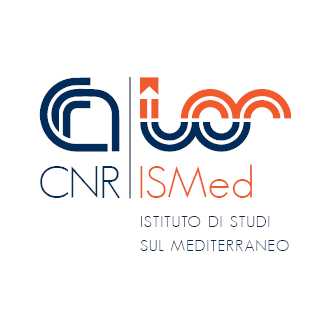The South in the history of the Mediterranean
Coordinator: Paola Avallone
Abstract
Mediterranean and Southern Italy is an area whose geographical and historical characteristics have made and continue to make it an extraordinary crossroads of cultural, political, religious and economic identities. According to some historians, the socio-economic divide between northern and southern Italy has remote roots, perhaps dating back to Norman times, and has evolved into the process of national unification. In reality, in the last few decades, the historiography that has challenged the interpretative categories of the disparity and the consequent axioms has been much more fruitful in terms of knowledge, overcoming the clichés of the ‘Mezzogiorno’ and proposing the existence of several Mezzogiornos as composite realities. Hence, the need to investigate its role in an articulated and dynamic scenario such as the Mediterranean one. Therefore, with a view to a renewed sense of complexity, the researchers involved in the research project intend to examine socio-cultural and economic processes from the late Middle Ages to the contemporary age, conducting macro and micro analyses on social, cultural and economic issues, in a comparative and long-term perspective, placing the development of these realities in a broad frame of reference. Historical studies tout court and the historical analysis of economic, sociological, landscape, settlement and urban characteristics, aimed at enhancing territorial identity through cultural heritage, are part of this investigative requirement.
Objectives
The project stems from solid historiographic strands and a fertile and topical debate. On this background, one of the objectives of the researchers is to overcome the heuristic limits of the categories of ‘gap’ and ‘disparity’, as well as the more worn out topoi about the ‘Mezzogiorno’. Assuming a broad historical horizon of Mediterranean and European relations, the project intends to bring out the distinctive features of the ‘Mezzogiorno’ in the Mediterranean and in the Italian peninsula itself, combining historical-economic, social and cultural research of a macro and micro nature, through the use and exploitation of original and unpublished documentation (examination of sources, bibliographic research and archive surveys).
Activities
The research activity focuses on the investigation and analysis of the historical processes characterising the territory of southern Italy and its historical role in the greater Mediterranean area, from a comparative and long-term perspective (late Middle Ages – contemporary age). In this framework, specific consideration is given to: the economy and policies of peninsular and insular maritime territories; public intervention and economic and fiscal policies; the role of institutions in southern society; public health, welfare and charity systems in the Mezzogiorno as a model at the basis of modern welfare; the formation of human capital and school-educational structures; health control in the maritime context and epidemics; credit and commercial societies. Similarly, special attention is paid to the processes of female exclusion/inclusion; to the communities and cultural traditions of Italian communities historically present also in other countries on the Northern and Southern shores of the Mediterranean; to the material/immaterial cultural heritage of the Euro-Mediterranean regions as a tool for achieving sustainable community development. Fundamental to the performance of the above activities is the use of innovative information storage and management processes in terms of digital transition for data representation, formalisation of research phases and dissemination techniques of results.
Themes
Dealing with a multiplicity of aspects, the project aims at analysing, with historical, economic and social methods, the complex events of the economic and social development of Southern Italy and other disadvantaged areas of the Mediterranean in relation to their relationship with richer areas and with the Mediterranean as a whole. More specifically, the project intends to investigate the following issues: 1) analysis of the transformation of institutions in the long term with particular attention to regional realities and social, economic and territorial identities; 2) study of the modernisation processes of production sectors and market structure; 3) analysis of human resources, innovation and the labour market; 4) gender studies with regard to geographical, economic and cultural mobility; 5) the conservation and enhancement of the historical-cultural heritage of cities as a driving force for the economic development of certain geographical areas (collective memory, cultural identity of Mediterranean cities; representation, organisation, promotion of historical and interest centres).
Contacts and collaborations
State Archives of Naples, Istituto Banco Napoli – Fondazione (Naples), Italian Institute for Philosophical Studies (Naples), University of S. Orsola Benincasa (Naples). Orsola Benincasa University (Naples), University of Naples – L’Orientale, University of Molise (Campobasso), University of Cassino, University of Bari, Scuola Normale Superiore (Pisa), Fondazione – Istituto Internazionale di Storia Economica “Francesco Datini” (Prato), Fondazione del Monte di Bologna e di Ravenna (Bologna), Centro Interdipartimentale di Studi Europei e Mediterranei dell’Università di Trieste (CISEM), École des Hautes études en sciences sociales françaises (EHEES) (Rome), Maison Méditerranéenne des Sciences de l’Homme (MMSH) (Aix-en-Provence), National Hellenic Research Foundation (NHRF) (Athens), Consejo Superior de Investigaciones Cientificas (Spain); Museo del Mare (Bagnoli – Naples); Museo del Mare di Bagnoli; Istituto Centrale per i Beni sonori ed audiovisivi (Rome); Institute of History, State and Law of the Academy of Sciences of Moldova (Chisinau – Moldova); Associazione Forum Scuole Storiche di Napoli
Main collective research products
Essays in collective volumes; articles in nationally and internationally recognised journals; participation in projects, in collaboration with national and international institutions, periodical publication in open access in the series Strumenti e documenti per la storia del Mezzogiorno; organisation of the annual Seminar of Doctoral Studies in History and Economics of Mediterranean countries (secc. XIV-XIX); production of video-mapping and digital archival repertories.
Last update
20 November 2023, 11:06

 CNR – ISMed
CNR – ISMed